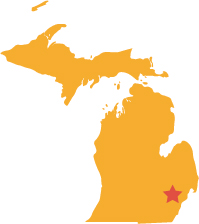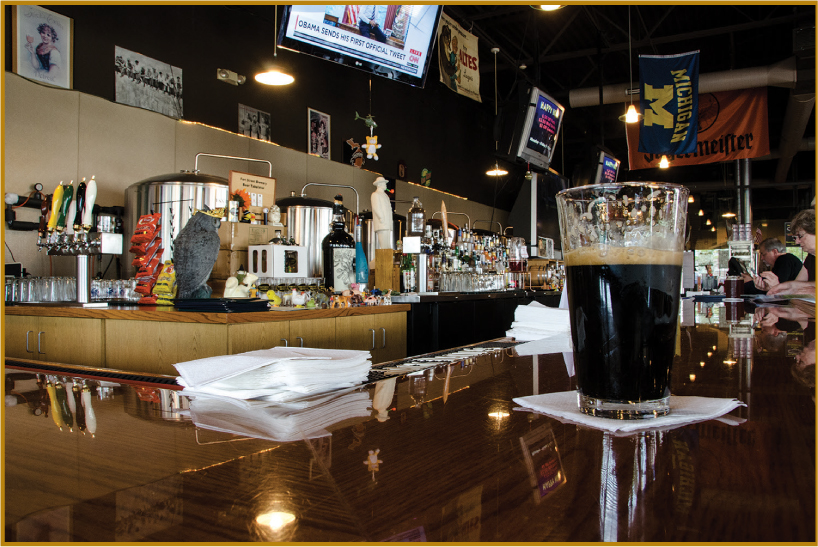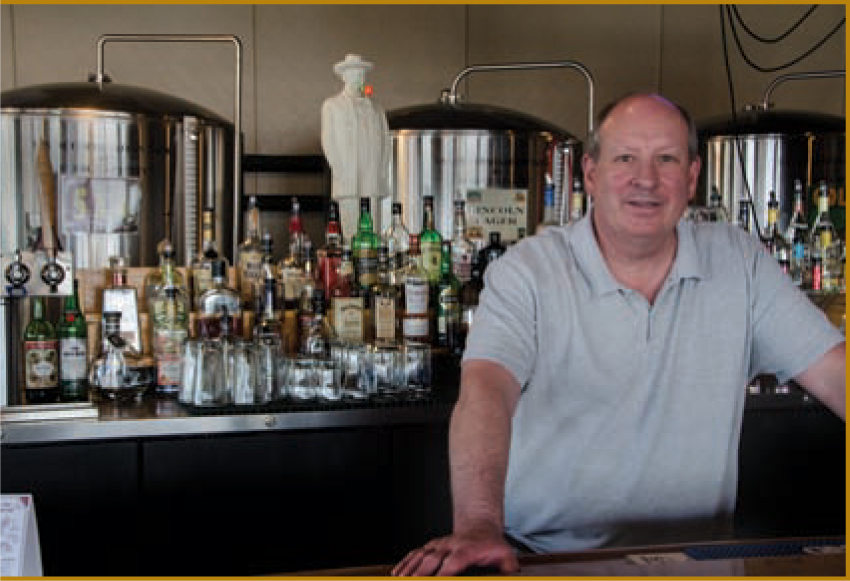

1660 Fort Street
Lincoln Park
313-389-9620
OWNER: Pete Romain
BREWER: Ryan Walker
FLAGSHIP BEERS: Lincoln Lager; Bedlam, a Belgian-style wheat ale; Gold Green, a Belgian IPA; Downriver Red, a German-style altbier

Pete Romain is a hardheaded businessman in a hardscrabble town.
Romain’s story at the Fort Street Brewery in Lincoln Park is the opposite of the many community-renewal narratives that accompany the opening of a new neighborhood brewpub. Romain opened his brewery in 2005 in a building constructed from the ground up. In many places Romain’s investment and gesture of faith in the community would have been enough to spark additional investment. Unfortunately, Romain continues to watch the area around his attractive, well-kept business deteriorate.
Lincoln Park is a working-class city with industrial roots, a bedroom community for the people who worked in steel mills and auto plants in Detroit, Ecorse, and River Rouge. As industrial America has fallen on hard times, so has Lincoln Park. The main thoroughfare that runs past the brewery, Fort Street, is dominated by shuttered storefronts, decrepit buildings, and “For Sale” signs. Romain uses his own money to keep the block tidy, hiring crews to pull weeds from sidewalks, mow the grass, and remove snow from city-owned parking lots.
But there’s only so much he can do alone. Two blocks to the north of the brewery is a pawnshop, and a block to his south is a crisis pregnancy center. Those are not the kinds of neighbors that help to bring business to a brewery that aspires to a different clientele.

Pete Romain, owner of Fort Street Brewery in Lincoln Park.
Romain has tried advertising on the radio and cable TV and in the local newspapers without much success. The most effective way to get people to walk through the door, he said, is to advertise to the state’s craft beer lovers through the Michigan Beer Guide, published six times a year by Rex and Mary Halfpenny.
Despite its location, beer lovers do seek out the Fort Street Brewery. On a sunny Saturday afternoon, a party of twenty-five people attending a wedding at a nearby church walked in for a couple of rounds between the ceremony and the reception. The leader of the group, a man from Lansing, specifically brought his friends here because it is the only craft brewery for miles around.
Despite the lack of support from a city administration that seems to prefer gimmicks over solid economic development planning, the brewery has built up its own community—a beer fan club of sorts—and Thursday is their night. That’s when the brewery traditionally opens a new cask of specialty brew. On the particular Thursday of my visit, the bar was debuting Red Devil, a traditional Irish Red brewed with Devils Claw, a root from Africa used in traditional medicine to treat arthritis and improve digestion. The root’s bitter flavor gives the beer an earthy smell and taste.
Unusual brews like Red Devil allow Romain to play beer evangelist and persuade drinkers with conservative tastes to try something new. To his credit, he wins converts more often than not—and occasional visitors come back a little more often.
Still, Romain describes himself as a businessman first and a brewery owner second. He knows his clientele and location well; Fort Street Brewery has some of the cheapest prices for craft beer in the Detroit area. Romain is forced to keep prices down just to make sure people continue to come through the door. He also has regular special events and hires a band to play on the patio during Crusin’ Downriver, the summer classic-car festival that attracts more than three hundred thousand car buffs. Still, he thinks he—and all the other businesses in the area—could do better if they had more support from the city. And he’s not alone in that opinion.
On a quiet Monday afternoon, Bryan Craddock, the owner of a nearby pizza joint, finishes his lunch and a conversation with Romain at the brewery. Before heading out, he too expresses his frustration at the lack of support from the city. “I thought this would be the catalyst,” Craddock says, referring to the Fort Street Brewery. “The city doesn’t have the foresight. People get on the city council because they have personal interest and they aren’t necessarily looking out for the long-term interest of the city.”
Craddock has been in business on Fort Street for more than twenty years and, like Romain, has decided to stick it out. He and Romain hold on and hope for better days, but they know there’s only so much more they can take. “I’m still here after ten years,” Romain says. “Ninety-nine percent of the people would have been long gone, I guarantee you.”
Given what he’s experienced over the past ten years and the direction the city is going, does Romain see himself surviving another ten? “I’d love to be here another ten years at least,” Romain says quietly. “But I don’t know.”